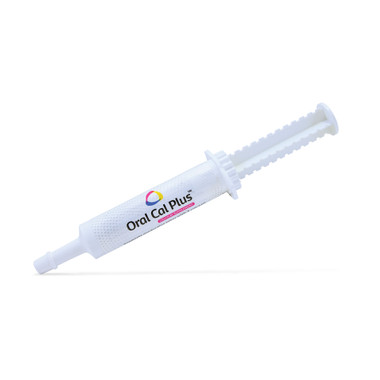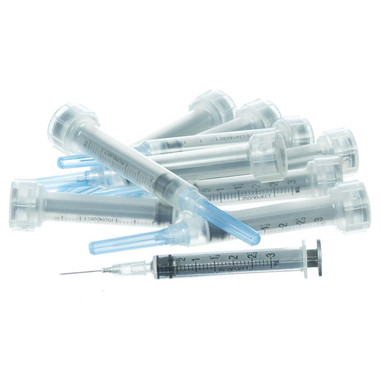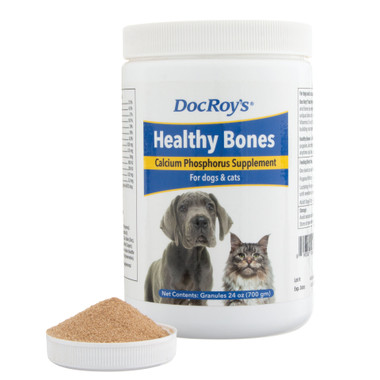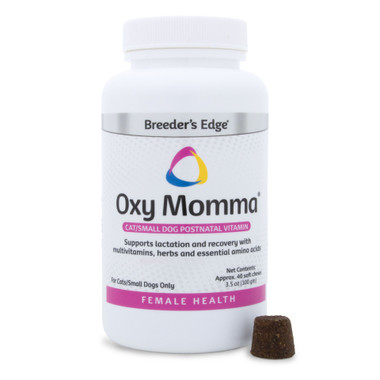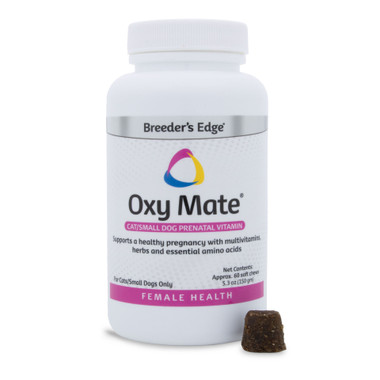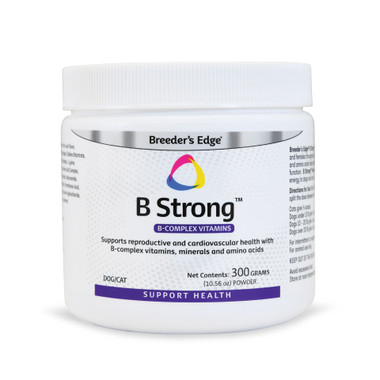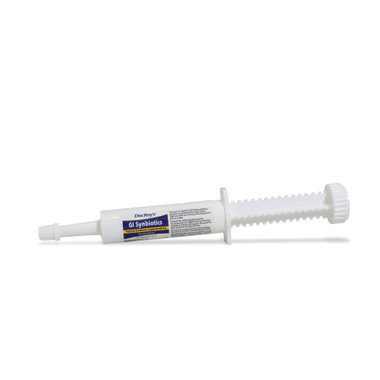It's Winter..What do I need to know to do Right by my Senior Horse?
Estimated 0 min read
Winter Senior Horse Care
Keep your older horse healthy and comfortable in the winter with these horse care tips.
As seasons change, your horse care routines need to adapt, particularly if you have a senior horse. If your equine partner is in his teen years or beyond, you’ll want to pay special attention to his care during the colder months. In this blog we address questions such as “Do Horses Get Cold”…”What about my horse in the snow? Should I be concerned? “My horse lives outside, what special steps do I need to take?” We’ve gathered some tips to help you keep your older horse healthy and comfortable, even when temperatures plummet.
Pre-season checkup
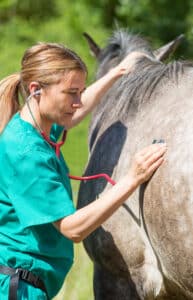
Schedule a equine vet check before winter
Lots of us winterize our cars when Winter is fast approaching, what about our horses? particularly our Senior Horses? Yes! they should be on your Winter To-Do list too! Plan on scheduling a physical checkup and dental examination with your veterinarian before the cold months. Basically, this is to make sure that your senior equine is as healthy as possible,
so that you can tackle any health issues now rather than later. Teeth in need of care can prevent your horse from chewing and digesting his food efficiently. If your horse can’t chew and process his food then he will lose weight and winter is not the time to entertain that sort of problem. Moreover, poorly chewed food can also contribute to choking and colic. Choke and colic
are the two main causes of equine death in seniors. Taking care of teeth and any other health issues in advance will set you up for success for the winter season. Albeit also, it will give you a baseline or a benchmark of your horse’s condition throughout the winter.
Hydration – Vital for your Senior
One of the most important steps to keeping a horse healthy is making sure they drink enough water. If a horse fails to stay hydrated, they are likely to colic from impaction, and dehydration leads to various health issues. In the winter, horses generally eat more dry forage, such as hay, rather than moisture-rich grass. So, hydration becomes an even more critical topic. Your first line of defense is monitoring your horse’s drinking and offering unlimited clean, warm, non-icy water. Your horse’s drinking water needs to be room temperature, but not hot, which will also discourage your horse from drinking.
Some horses dislike icy cold water. And in some locations, your horse’s drinking water may freeze over entirely. Don’t assume your horse will eat snow—most horses don’t eat snow or at least, don’t eat enough to provide adequate hydration. Nonetheless, it takes extra energy for your horse’s system to melt snow, taking away even more calories that he needs to stay warm.
Water Tank Heaters (electric)
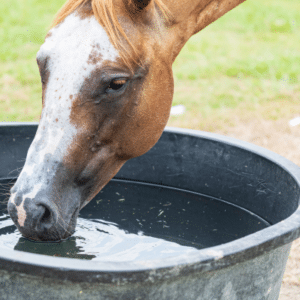
Keep your senior horse well hydrated
One way to solve these issues is by investing in water heaters—you have many options of heaters for your buckets and for your water troughs. Inspect the buckets and heaters daily to make sure there are no electrical issues that will end up shocking the water. Just imagine if your horse goes to drink from his trough and gets an electric shock. It probably will not be enough to kill him but he will certainly Stop Drinking! This is not as far-fetched as it may sound. And remember, if your horse avoids drinking, it can easily trigger colic. If you rely on outside water tanks to hydrate your horses….watch their behavior. If they approach the tank but stop short and leave, this may be your first indicator of a tank heater issue.
There is a good variety of tank water heaters on the market. It’s a good idea to speak with someone who has been down this road to learn about pros and cons of different types. Be sure to invest in top quality extension cords if your set-up requires them. Don’t try and save money on electrical connections, it’s way too risky for both you and your horse’s health.
Insulated Water Buckets for your horse’s stall
Remove ice from buckets daily if possible. And top off their water in the warmer parts of the day so your horse can drink before it freezes again. There are a variety of different options with regards to buckets in your horse’s stall. I searched the term “insulated water buckets for a horse’s stall” and found an amazing number of options at different pricing levels. I look upon equipment like this as an investment. If I buy something solid and sturdy and I look after it, I’ll have it for years!
You may have luck adding powdered electrolytes to some of your horse’s water buckets. Not only does it encourage drinking, it also may reduce ice accumulation. But always keep an untreated bucket of plain water available. However, be on the lookout with this one, some horses just don’t like it when you mess with their water. And if they don’t drink all of their water, adding extra over the next day or two leads to stale water bringing its own problems. Personally, I add electrolytes to their feed, but every horse is different, you have to see what works best for your equine.
Other hydration methods via his feedtub
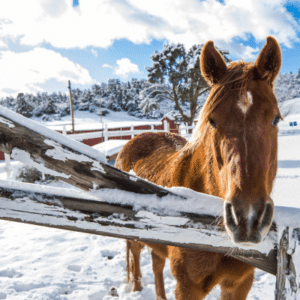
Waiting to eat his “mash”
Other ways to increase your horse’s hydration can include making mashes out of feed. You can add warm water and salt to your horse’s senior/complete feed, or even alfalfa cubes, to make a mash. My senior horse (now 31 and he’s 7/8 thoroughbred) just refuses to drink inside in winter, so I hang two feed tubs in his stall. And he begins every evening with a big slurry/mash along with salt in each one. The slurry may be some of his complete feed along with soaked alfalfa cubes and soaked beet pulp. He also has water buckets.
You can also try soaking your horse’s hay. You may need to experiment to find the best recipe to suit your horse’s preferences, but this can be a comforting and filling food choice for your horse in the winter. I’m not a huge fan of this one because it’s incredibly messy. But mainly because the hay at the bottom of the pile may spoil, get stepped on and in general, get wasted. Even though it’s a big initial investment, I love my hay steamer for my senior guys. Steaming it softens it and I find NO hay lying around in their stalls the next morning. A hay steamer is also a valuable asset that you can sell at a later point in life if you no longer own horses.
Increased calories and Body Score
A layer of fat and adequate feed are crucial to keeping your horse warm. So you want to keep an eye on your horse’sbody condition score. This is an area of their care that requires attention well in advance of winter. Plump him up starting a couple months before the cold weather hits. It’s a good idea to involve your Vet or local Feed store specialist in this one. If you have a Cushing’s horse or a horse with other medical issues, consider getting professional advice. Many feed companies have area reps who can assist but if you have any concerns or doubts, Please, involve your Veterinarian! Horses burn more calories to keep themselves warm in colder temperatures, so their diet needs to match the weather conditions. If you notice your horse is looking thinner, you may look to increase their caloric intake by adding more forage. The best way to keep horses warm in winter is simply…Forage. The very act of chewing and digesting hay keeps him warm. Your horse should be receiving 1-2% of its body weight in hay/forage per day, which for a 1,000-pound horse in moderate exercise should be around 20 pounds of hay per day. For a senior horse, you may need to offer forage cubes to facilitate any issues with chewing and digesting. And these may need to be soaked to avoid choking. Ask your Vet. Don’t guess or listen to a friend, get expert advice. Your horse depends on YOU to make the correct decisions. Moreover, many senior horses also eat grain or, better, a complete feed. You may need to increase the amount in the winter. Check with your veterinarian or an equine nutritionist with diet questions.
Protection from the elements
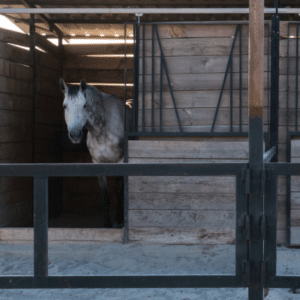
Winter horse in nice, dry shelter
If your horse lives outside, make sure they have access to clean, well-drained, dry shelter from wind and rain. The questions arise, “what about coats for horses in Winter?” Many horses don’t even need blankets, as long as they’re dry, away from wind along with a good winter coat. And, “how cold can horses tolerate?” A horse’s hair coat can withstand cold temperatures; it’s built to provide him with excellent insulation. But wind and rain will flatten the hair and disturb this incredible, natural insulation. The onslaught of wet, blustery weather will remove the natural built-in air pockets that Mother Nature has provided. Those air pockets are responsible for keeping horses warm in winter. Consequently, if your horse gets wet, the pockets are gone because the hair is flattened and he will succumb more easily to the cold.
Ventilation
Your barn may be snug and warm—but is it too warm? Horses are able to handle cooler temperatures much better than humans. And if shutting your barn up for warmth decreases the ventilation, your horse can suffer respiratory issues from ammonia fumes and dust accumulation. I sometimes leave the main door cracked a few inches, depending on temperature and wind, and put a light turnout sheet on my seniors. They stay warm but breathe well.
Walk around your barn and notice what the airflow is like. Is dust settled on horizontal surfaces? Do you notice overwhelming odors from equine urine in stalls? Look at opening windows and doors at times throughout the day to increase ventilation. If you store hay in your barn, consider keeping the top row at least two feet below the roofline to encourage airflow. Better airflow additionally helps to reduce the chances of mold. Remember, if you see a lot of dust or, if odors overwhelm you, then your equine friend’s breathing is subject to these contaminants for hours.
Deworming Routines
Keep up with a regular deworming schedule–parasites can weaken a horse’s immune system. With the variety of dewormers easily available, this one is not a difficult or expensive task.
Monitor your Horse’s Hooves
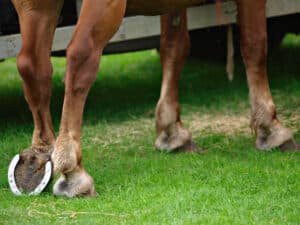
Maintain your senior horse’s hooves in winter
Keep your senior horse’s feet trimmed, and if he’s wearing shoes, monitor for any lost shoes. Pick out his hooves on a regular routine. This will help keep him mobile and sound during the muddy and icy winter months and prevent snowball formation. Again, as with other equipment, there is a large variety of options open to you for your horse’s feet. Most choices depend on his work level, terrain and your geographical location. A choice for a senior in N. Carolina may be completely different for a similar horse living in the Chicago area. Snowball formation can be a serious issue. Big buildups of snow make it difficult for your senior to get around and cause injuries. Speak with your farrier about options. There are many and varied. Moreover, some horses who are barefoot build up no snow in their feet whereas others can have a very difficult time.
Check your horse daily for skin woes or injuries
Check your horse daily for injuries, skin conditions or other issues. Run your hands all over the body and legs. Even tho’ you may not see any skin problems due to his woolly mammoth hair, his reaction, if you hit a problem spot, will tell you immediately. This is also a great time to groom him thoroughly, which stimulates and warms his muscles and offers daily connection.Treatany skin conditions promptly.
Finally, Be Attentive
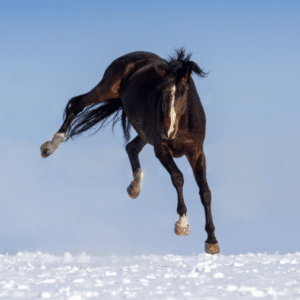
Happy horse! Make sure to monitor the mood of yours too.
Notice whether or not your horse eats all of his food, if he’s drinking much or all of his water, and if he seems comfortable. A colicking horse often refuses feed and water. He may roam around, looking at its stomach, sweating or showing signs of distress. But not all horses show these signs, especially an older one. So, keep a close eye on your senior horses in the winter to make sure they are healthy and comfortable. Consult your veterinarian if you have any concerns.
Visit Our Horse Blog
To learn more about Banixx and our equestrian projects we support please followour horse blog. Better yet, as a horse lover, read one of stories on thesmallest horse in the world. Or on a more serious note, learn how toadd safety measures to your farm for your horse.
Sources
https://issuu.com/equestrian/docs/winter_2020/54
https://vetmed.tamu.edu/files/vetmed/vmth/laminitis/Equine_Body_Condition_Scoring.pdf
https://www.hagyard.com/preparing-your-older-horse-for-winter#:~:text=Provide%20a%20salt%2Fmineral%20lick,covered%20by%20snow%20or%20ice.&text=Winter%20can%20set%20older%20horses,a%20well%E2%80%90%20managed%20vaccine%20plan
https://thehorse.com/136958/caring-for-senior-horses-in-cold-weather/






